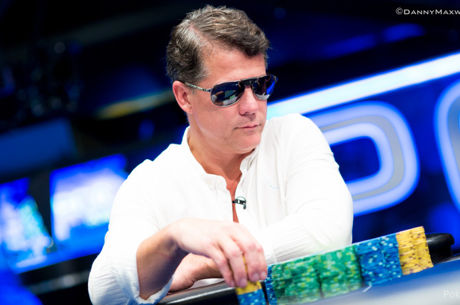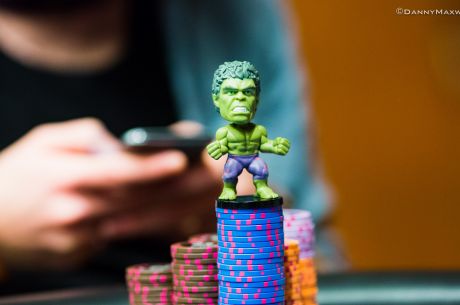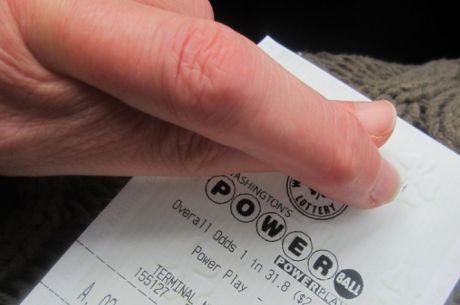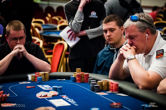Why So Much? An Exercise in Capping an Opponent��s Range
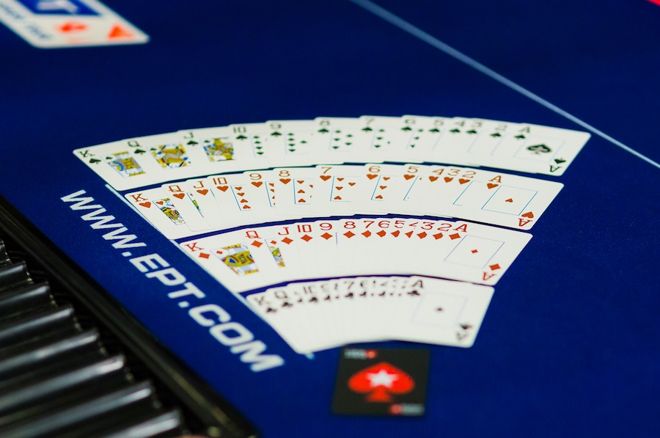
Capping an opponent��s range means to exclude the strongest possible hands from a player��s range given the situation. Once we know our opponent cannot hold the strongest possible hand or hands, we can improve our decision-making with the hand we hold.
An opponent might remove the nuts from their range through any possible action. One would hope for their sake that folding means they didn��t have the nuts. But we can also pick out that someone doesn��t hold the nuts from their calling, betting, or raising in a given situation. We might even be able to cap their range if they raise a certain amount and not another.
I played a hand in a �550 side event at EPT Prague that I think provides a perfect example of this last scenario.
Calling a Reraise Preflop: Omit the Premiums
The blinds were 500/1,000 with a 100 ante. I had about 36,000 to start the hand and was dealt A?3? in the small blind. My opponent raised to 2,200 on the button, and I three-bet to 5,700. He had me covered, but had just lost a flip versus a short stack, AxKx vs. JxJx �� a standard hand, but perhaps his momentum felt out of sorts.
In any case, the big blind folded in short order and almost more quickly than that my opponent called.
Actually, just by his calling the three-bet, we have an idea already that he does not hold some of the more natural four-betting candidates �� AxKx, KxKx, QxQx.
Checking Back the Flop: Narrow Further
The flop rolled out A?10?6?. I checked and my opponent checked. The pot was 13,200 at this juncture �� perhaps we can already take out some of the strongest hands from his range?
Would he really trap with hands like 6x6x, Ax6x, or Ax10x in this situation? A pot has to be built to get the full stacks behind into it. A hand like Ax6x is particularly vulnerable to two-card run outs that may transform it from clear value hand to strong bluff-catcher.
Shoving the Turn: Capping His Range
The turn was the 8?, matching the suit of the ace on the board. I decided at this point that my hand benefited much more from protection than from a free card closer to showdown. On the flop I would like to see if my backdoor equity materializes and I also don��t want to start narrowing (and therefore strengthening) the continuing range of my opponent. But here it is time to bet.
I bet 4,700. My opponent moved all in. It was 26,000 or so more to me. I did that surprised thing where you lean out over the rail and squint a bit at the board cards.
Can he have 9x7x in this circumstance? He can when I bet into him on the turn. But I don��t think he can often when he (a) decides to raise, and (b) decides to raise all in. He should not have that much to fear with 9x7x with the added protection of being in position. And if he only has 9x7x-suited, then one of those combinations has clubs and he has even less to worry about.
The turn has not added many value hands, perhaps 8x8x, 10x8x, 8x6x, and Ax8x, compared with the draws that would be incentivized to be played this way �� e.g., QxJx, Jx9x, pairs with gutshots, and many club draws. Most club draws, it should be noted, either have a pair, or a gutshot. (One would think with a pair he would be likely just to call. But we��ll get to that.)
Meanwhile, what does my hand look like? Something that isn��t that strong. Therefore his strongest hands should have an incentive to keep me in the pot.
When he checked back the flop, if he ever does with those Ax10x or 10x10x-type hands, or turns out to have 8x8x or 9x7x, he should be thinking about trapping my weak range for more. But when after the turn he has something without showdown value, or a hand that doesn��t give him the ability to call a river bet from me, he might seize on my weakness and make this play for the pot.
To go back to the beginning, with a hand like 9x7x, if a player decides to raise the turn, he might raise to 9,900. Otherwise he risks losing his customer.
I called with my Ax3x and got some bad news. But not the worst news! My opponent had 9?6? for pretty much everything �� a pair, an inside straight draw, and a flush draw. I was ahead, but only a 60-40.
I think if my opponent reads my hand range as weak on the turn, then it is likely I will be weak on the river as well. If he calls and doesn��t make a hand he likes, he can always decide to bluff me out, abetted by his positional advantage.
In a way, he made the hand easier on me, by capping his range with his turn raise all in.
Want to stay atop all the latest in the poker world? If so, make sure to get PokerNews updates on your social media outlets. Follow us on Twitter and find us on both Facebook and Google+!

